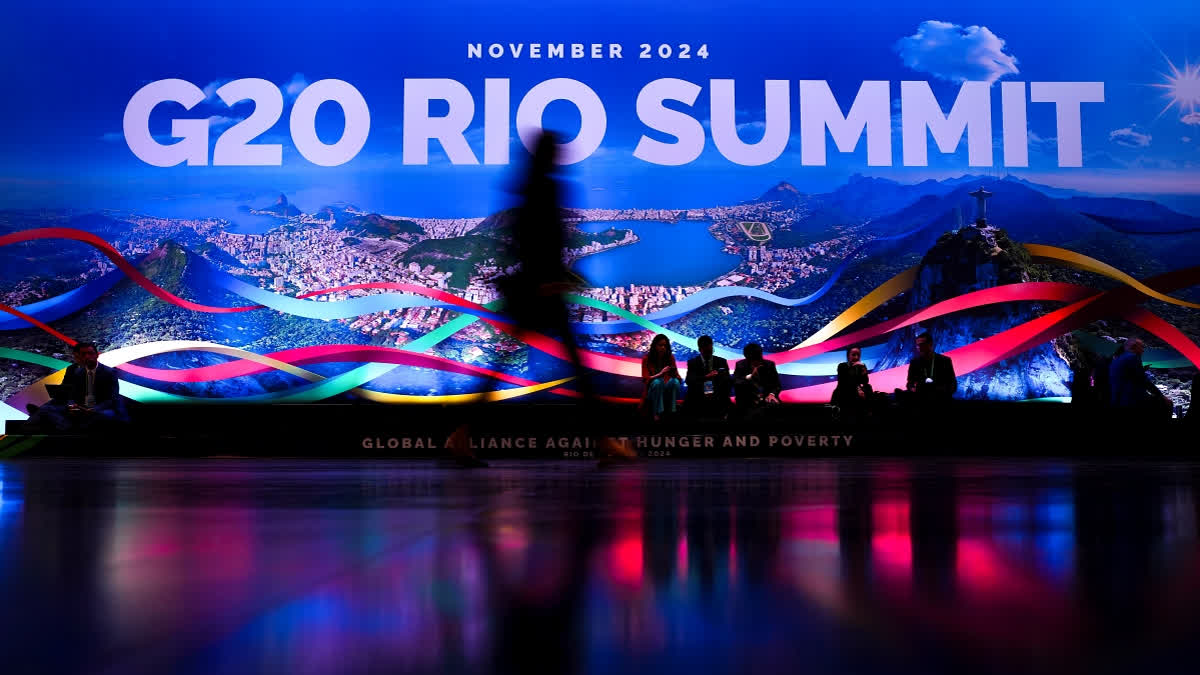Baku (Azerbaijan): G20 leaders have not given a strong signal to negotiators trying to agree on a new finance package to support climate action in developing countries, many climate experts feel.
However, they say it is important that the 20 richest nations in the world, accounting for 80 per cent of global greenhouse gas emissions, have reaffirmed their support for multilateralism and the UN climate convention to solve climate problems.
This comes amid concerns about the US and Argentina pulling out of the Paris Agreement, which has hurt the morale of negotiators at the talks in Baku. The G20’s pushback on "unilateral trade practices", like the EU's Carbon Border Adjustment Mechanism, is also seen as crucial for developing countries.
That said, experts note some key gaps in the G20 statement. It does not explicitly mention transitioning away from fossil fuels or mobilising resources to address loss and damage caused by climate change.
Vaibhav Chaturvedi, a senior fellow at the Delhi-based Council on Energy, Environment, and Water, said the G20 is not the right platform to discuss the new climate finance package being negotiated at COP29 under the UNFCCC process.
The real issues about quantum and who will contribute are not addressed at the G20. These questions go beyond the G20, he said. He added that the G20 leaders’ emphasis on multilateralism is important. "This is one of the first points in the climate section. Despite uncertainties like the US and Argentina pulling out, they have stressed that the multilateral process is key," Chaturvedi said.
Harjeet Singh, climate activist and Global Engagement Director for the Fossil Fuel Non-Proliferation Treaty Initiative, criticised developed nations in the G20 for failing to specify the trillions needed or ensure funds are given as grants, which are crucial for climate justice.
"Without decisive progress on finance at COP29, we are steering towards a catastrophic temperature scenario, where the most vulnerable will bear the gravest consequences," he said.
Trishant Dev, a programme officer at the Delhi-based Centre for Science and Environment, welcomed the G20’s stand against restrictive trade measures. He said such measures hurt developing countries and need to be aligned with the principle of Common but Differentiated Responsibilities (CBDR).
The G20 declaration could pressure countries to discuss these issues at COP29, especially since developed nations often use climate action to justify these trade policies, he said.
Chaturvedi added that the G20 had made it clear that unilateral measures should not be used as unjustified trade restrictions. Securing an agreement on a new climate finance package to help developing countries cut emissions and adapt to climate change is a top priority for this year's UN climate talks.
Different estimates suggest that USD 1.3 trillion is needed annually to tackle worsening climate impacts. But countries are struggling to agree on how much money is needed, how the package will work, and who will contribute. For developing nations, restrictive trade measures are another major concern.
Last week, India argued that these measures unfairly shift the burden of transitioning to low-carbon economies onto developing and low-income nations. At the same time, developed nations, which have historically caused the most emissions, are not meeting their climate finance commitments.
UN climate chief Simon Stiell on Saturday also urged G20 leaders to carry out rapid cuts in emissions to prevent climate-driven economic carnage.



